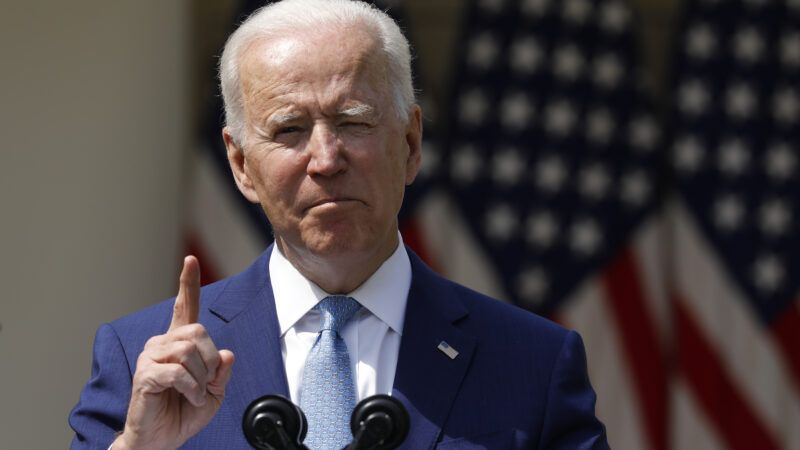Joe Biden, Who Says He's 'Not a Fan of Court Packing,' Just Created a Presidential Commission to Study Court Packing
The Presidential Commission on the Supreme Court of the United States will examine “the membership and size of the Court.”

The White House announced today that President Joe Biden will sign an executive order creating a new Presidential Commission on the Supreme Court of the United States. The group will be composed of legal activists and scholars who will "provide an analysis of the principal arguments in the contemporary public debate for and against Supreme Court reform," according to a statement released by the White House. Among the items up for discussion by the commission are "the length of service and turnover of justices on the Court" and "the membership and size of the Court."
The commission fulfills one of Biden's campaign promises. "If elected," Biden told 60 Minutes, "I'll put together a national…bipartisan commission of scholars, constitutional scholars. Democrats, Republicans. Liberal, conservative. And I will ask them to, over 180 days, come back to me with recommendations as to how to reform the court system, because it's getting out of whack."
Despite many pleas from progressive activists—who would love to see Biden enlarge the Court and fill the new seats with Democratic appointees—Biden has so far refused to endorse any sort of court-packing scheme. "I'm not a fan of court packing," Biden said on the campaign trail. "The last thing we need to do is turn the Supreme Court into just another political football, whoever's got the most votes gets whatever they want," he told 60 Minutes.
When President Franklin Roosevelt famously tried to pack the Supreme Court in 1937, his plan was defeated thanks in significant part to opposition from his fellow Democrats. As I recounted in my recent feature story, "Don't Pack the Courts," FDR's "most effective adversaries turned out to be members of Roosevelt's own party, such as the legendary progressive jurist Louis Brandeis, who deftly maneuvered behind the scenes to ensure the bill's ultimate defeat. Like so many others at the time, Brandeis was frankly aghast at FDR's blatant power grab."
Let's assume that Biden's new presidential commission recommends a Roosevelt redux and endorses court packing 2.0. Will a modern-day Brandeis arise to oppose the plan from inside of the liberal coalition?
The late Ruth Bader Ginsburg might have been up for it. It "was a bad idea when President Franklin Roosevelt tried to pack the court," Ginsburg told NPR in 2019, and it would be a bad idea now. "If anything would make the Court look partisan, it would be that—one side saying, 'When we're in power, we're going to enlarge the number of judges, so we would have more people who would vote the way we want them to.'"
Justice Stephen Breyer similarly opposed court packing in a recent Harvard Law School speech, in which he urged proponents of such judicial tinkering to "think long and hard before embodying those changes in law."
Will Biden pay heed to such voices? Will Biden himself play the Brandeis role and oppose rigging the judicial process for his own party's benefit? It looks like we're about to find out.


Show Comments (313)